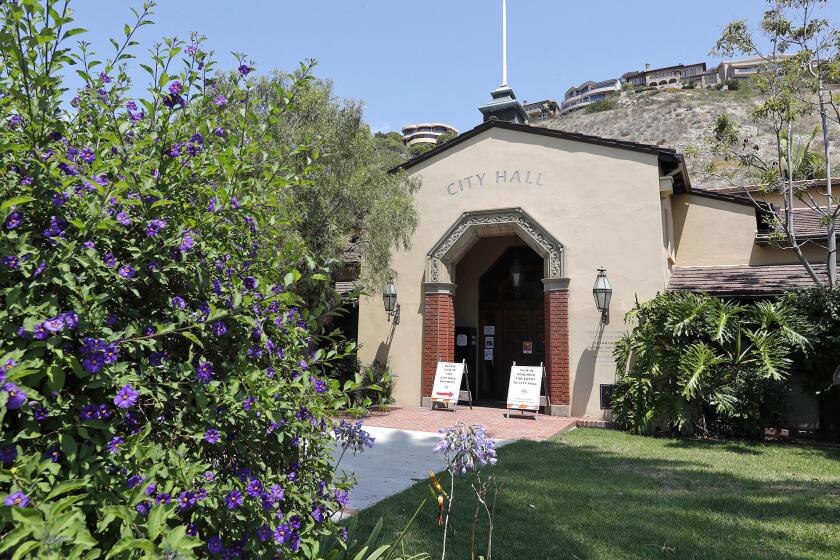Karate program is a safe haven for at-risk kids
- Share via
Among the low-income neighborhoods near the El Modena Family Resource Center in Orange, children contend with avoiding gang recruitment and drugs.
While parents scramble to pay for life’s necessities, the center’s karate program provides children with a haven from the harsh elements of their neighborhoods.
Jo-Pledge, an instructor and founder of the program, said it’s particularly important to keep kids away from the grasp of two local community gangs: the Pearl Street and El Modena gangs.
Maribel Reyes, the center’s manager, said the gangs generally avoid the center so it’s a desirable place for children to go after school to keep them from mischievous activity.
With Reyes acting as translator, Karina Vega said her son Andrew Valenzuel, 10, has learned discipline due to the program rather than engaging with bad influences.
Rafaela Gonzalez, through Reyes’ interpreting, said her three children have learned how to defend themselves while avoiding drugs and other harmful temptations outside of the center.
“Because they are busy, they don’t have time to be out on the street,” Gonzalez said.
Pledge started the program about five years ago after pitching the idea to the El Modena Family Resource Center, which has for decades provided a variety of support resources and assistance to the low-income families who live nearby.
Originally, Pledge and her husband, Mike Mustoe, were teaching at a dojo in Fountain Valley. They’re both instructors at El Modena along with Geoff Wygchel, who once was on the American karate national team.
Each instructor holds a black belt and has been studying karate since the 1980s. Pledge and Mustoe both served as international karate referees.
The program began with 22 children and has since since grown to 50 enrolled students.
The program fills an important void in one of Orange’s poorest communities, with many families wanting their children enrolled in after-school programs despite lacking the ability to pay the hefty costs.
The karate program charges $4 a month for the first child and $2 for each subsequent child per family. If some can’t afford that, then they can bring two bags of recyclables each month as payment.
The karate program doesn’t need much money to function because the center doesn’t charge any rent to use its facility.
Recently, the Community Action Partnership of Orange County received a $5,000 grant that will be devoted to the karate program.
Pledge said team sports can be beneficial, but what sets karate apart from them is its hybrid reliance on both teamwork and independence, which engenders valuable life skills in students.
“One of the nice things about karate is you are in a group but it’s individual-based also,” Pledge said. “These kids are benefiting because they can go at their own pace but they have people who encourage them.”
Having a community of encouragement can be particularly beneficial for at-risk kids who haven’t traditionally been given much to get ahead in life.
“There’s so much entitlement among upper-income kids whereas these kids are pleasant to be around,” Pledge said. “They don’t assume that things will go their way. They discuss and ask, rather than demand.”
Pledge described how the first time they took the kids to a tournament and they left the confines of their neighborhood, their eyes widened with excitement, as though they were experiencing their first communion with the outside world.
“They are finding that there is a whole world out there and they are capable of interacting in it,” Pledge said.
Pledge is grateful for witnessing the growth of the students who transcend their neighborhood’s grip.
During the program’s infancy, one of their first students was a very shy young girl. When tasked with performing in tournaments with more than 100 spectators, nerves would take hold, but she still went out and gave it her all, Pledge said.
Eventually, the program imparted her with confidence and she attained a full-ride scholarship from UC Santa Barbara.
“Some of these kids prior to this aren’t even thinking about college,” Pledge said. “If I have 30% of these kids getting into college, I consider that a success.”
Twitter:@benbrazilpilot
All the latest on Orange County from Orange County.
Get our free TimesOC newsletter.
You may occasionally receive promotional content from the Daily Pilot.










